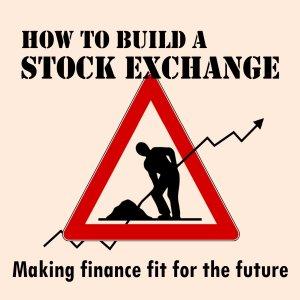How to Build a Stock Exchange

Episode 13. Other people’s money
This episode returns to 1999, the year of dotcom mania to explore how rivers of cash from private investors – other people’s money – changed the shape of finance forever. OPM paid for new infrastructure, made finance mainstream in the media, and helped establish a stock exchange for small company stocks. Fortunes were made – even the Queen got involved – but not by these everyman punters. We start thinking about why these ‘other people’ invest at all, especially as they are so bad at it.
Transcript
The summer of 1999 found me, aged 25, an inexperienced young reporter at the newly founded Shares Magazine. We occupied a scruffy, overheated office in Southwark, just opposite where the heroes hung out in Guy Richie’s classic film, Lock Stock, just round the corner form where Colin Firth and Hugh Grant crashed through a restaurant window, battling over Bridget Jones. Borough Market, around the other corner, still sold fruit and vegetables to London’s cooks and costermongers. Yes, it was a very long time ago.
We lived then – as now – in interesting times. In 1999 the world really started to get excited about the internet. Stock markets, booming since the mid-1990s, lost all semblance of control. We looked forward to the internet freeing us all and at the same time making us all rich. Ha! See how that one turned out. But the money pouring into these internet stocks changed the way the world of finance worked for good, and that’s the subject of this episode. For anyone that looked, there were also plenty of signs that we would never manage to democratize the profits of the internet and use it to rebuild our institutions. We were, as always, just too mean and greedy. Too quick to dine out on other people’s money, or OPM as the spivvier boys called it. Of course, I never looked. I had parachuted straight into this world of paid-for lunches and the world jostling for my attention or hanging on my every pronouncement. A fellow scribe had landed the precious small companies correspondent job at a prestigious news outlet. In this, his first job after university, he would find himself speaking to one chief executive on one line, with a stream of callers trying to get him on another, his mobile ringing, thrown in a drawer. On one occasion he tipped a small firm and saw the shares rise 50%, adding £11m to its market cap. ‘At the age of 24’, he said, ‘that was a big deal’. Imposter syndrome? We were so far off the pace that we didn’t even know we were.
Once or twice, I did begin to feel that everything was not quite as it should have been. On one occasion I received a telephone call from a television investment channel, asking me to go to the studio and offer some share tips. I didn’t think that any of the shares on my beat were worth tipping that week, so I picked up the magazine and looked up the house recommendations, took them down to the studio and sang their virtues on air.
That should have been that, but a couple of days later, working late, the phone on my desk rang. The caller carefully explained that he had lost £10,000 on one of the stocks I had tipped. He wondered whether I knew of anything that had gone wrong with the stock, anything that might have moved the market so rapidly against him. I didn’t, and the newswires showed nothing. Had there been, the caller wondered, any heavy selling that I was aware of? There was none, as far as I knew, I replied. But, he said, someone must have been selling or the price would not have moved. A weighty silence, and the caller rang off. I told myself that anyone who staked ten grand, or rather, staked enough to lose ten grand on the recommendations of someone so obviously green behind the ears as me, got what was coming to them. Still a sense of disquiet, and perhaps even a gnawing sense of responsibility, persisted. I checked out a few more of the house tips, particularly those associated with more savvy, occasional contributors.






 Visit Podcast Website
Visit Podcast Website RSS Podcast Feed
RSS Podcast Feed Subscribe
Subscribe
 Add to MyCast
Add to MyCast